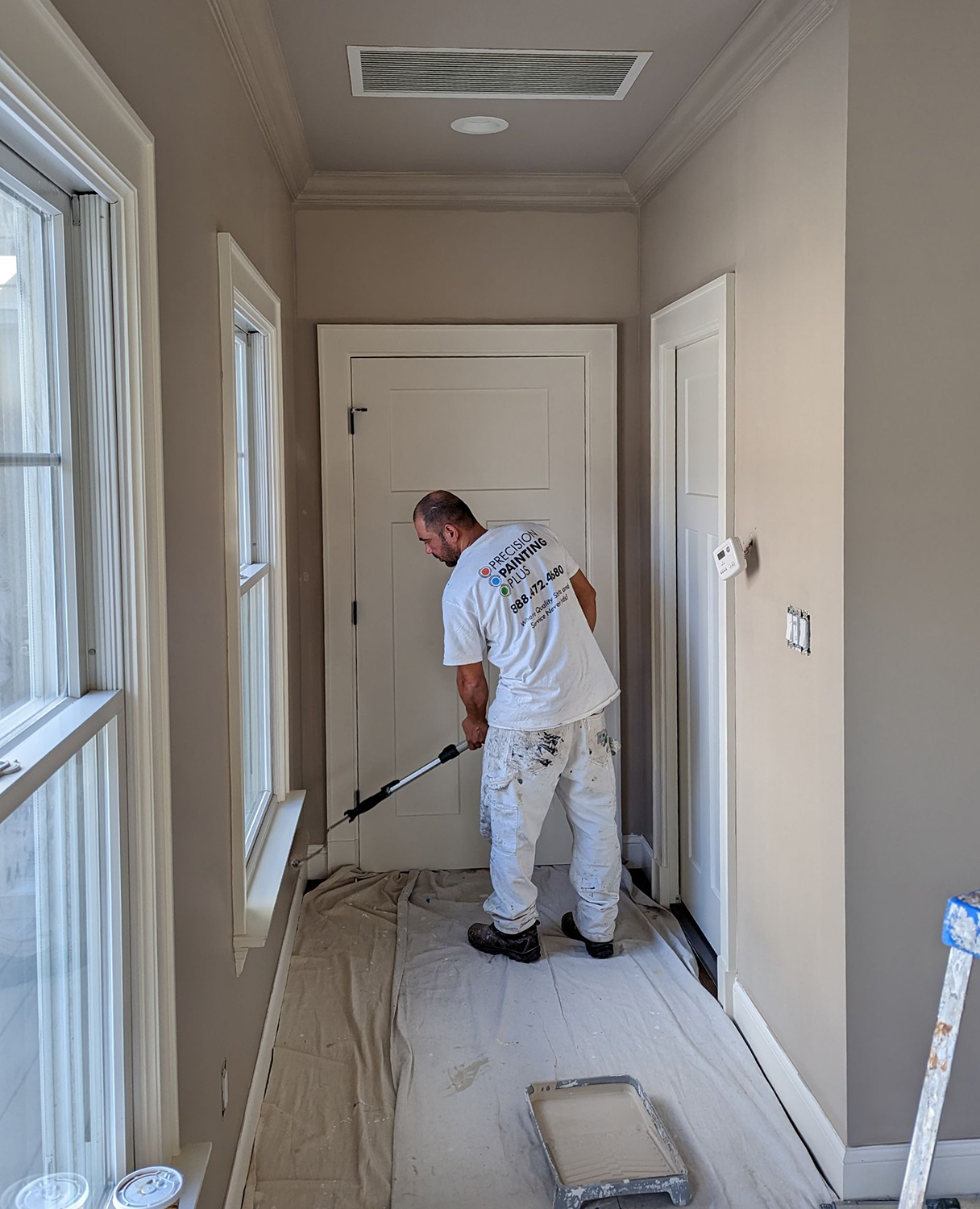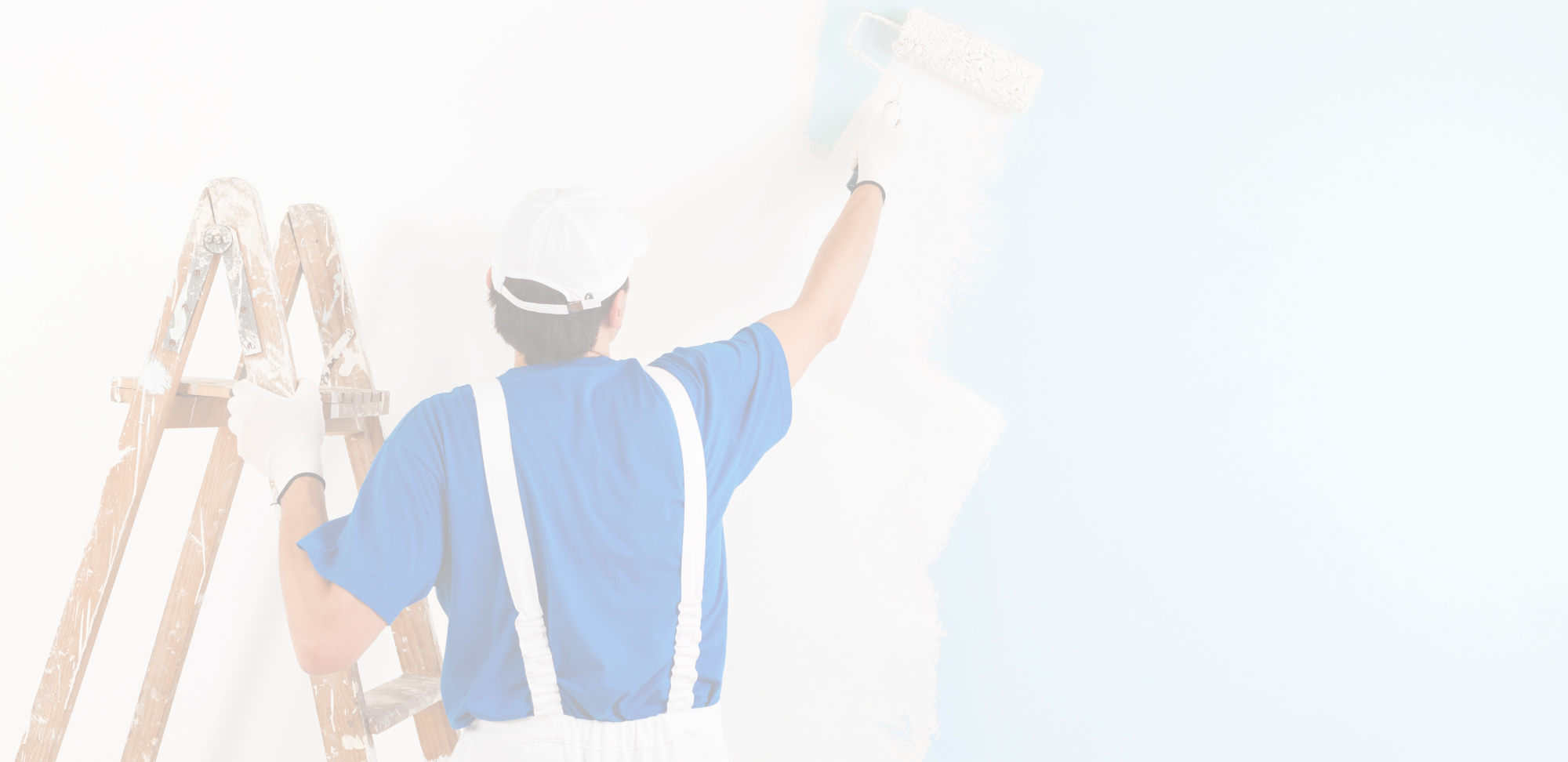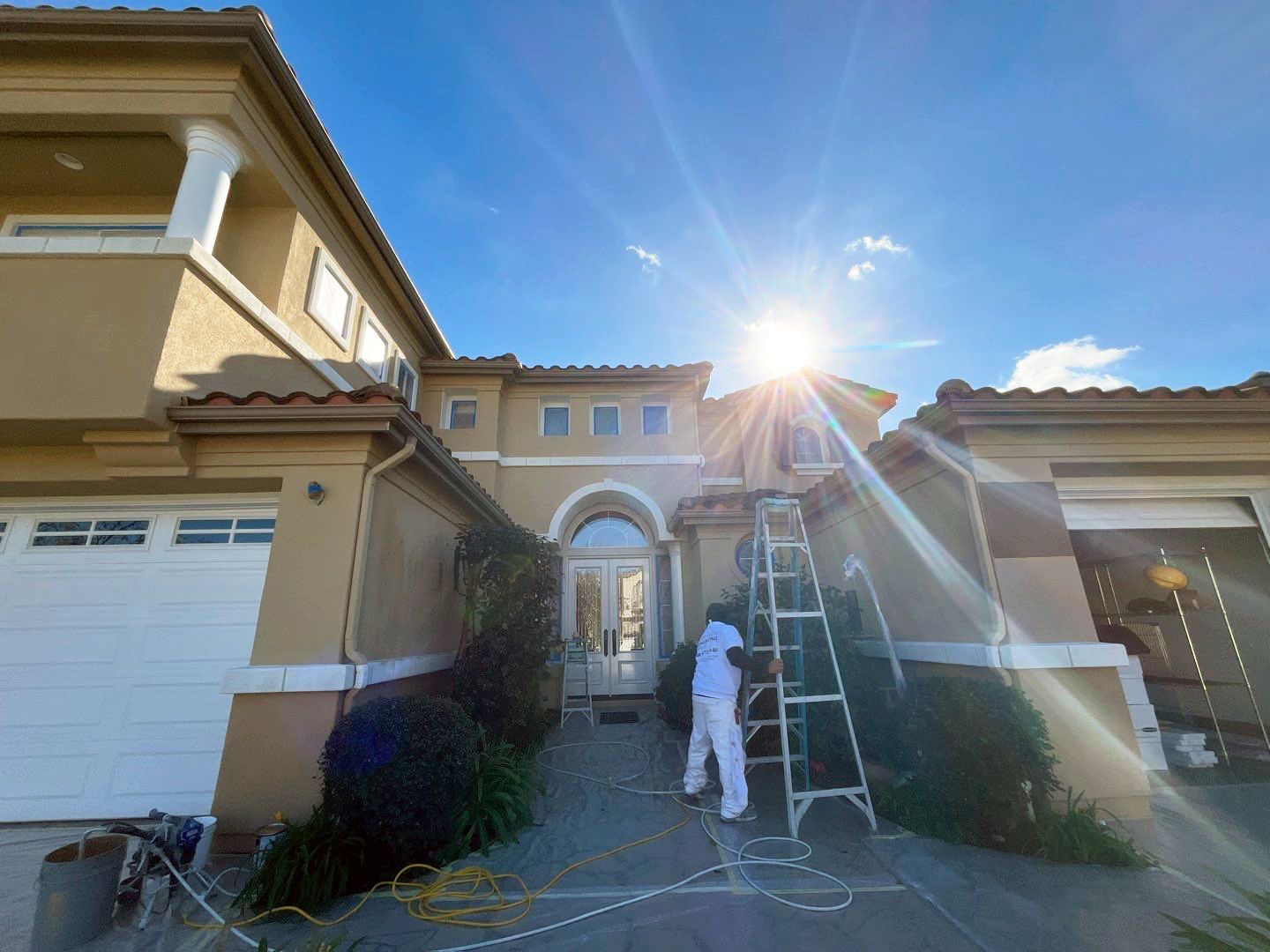
Giving your home a fresh coat of paint can breathe new life into its appearance. However, achieving professional results requires more than a steady hand and a paint bucket.
Enlisting the services of a professional painting team guarantees a high-quality finish and a stress-free experience, thanks to their expertise and years of experience in the field.
This guide will explore what you can expect from a professional painting service and how to choose the right one for your project.
We’ll walk through the before, during, and after of a professional painting project to give some context on how they usually go and what you need to know to make the most informed decisions.
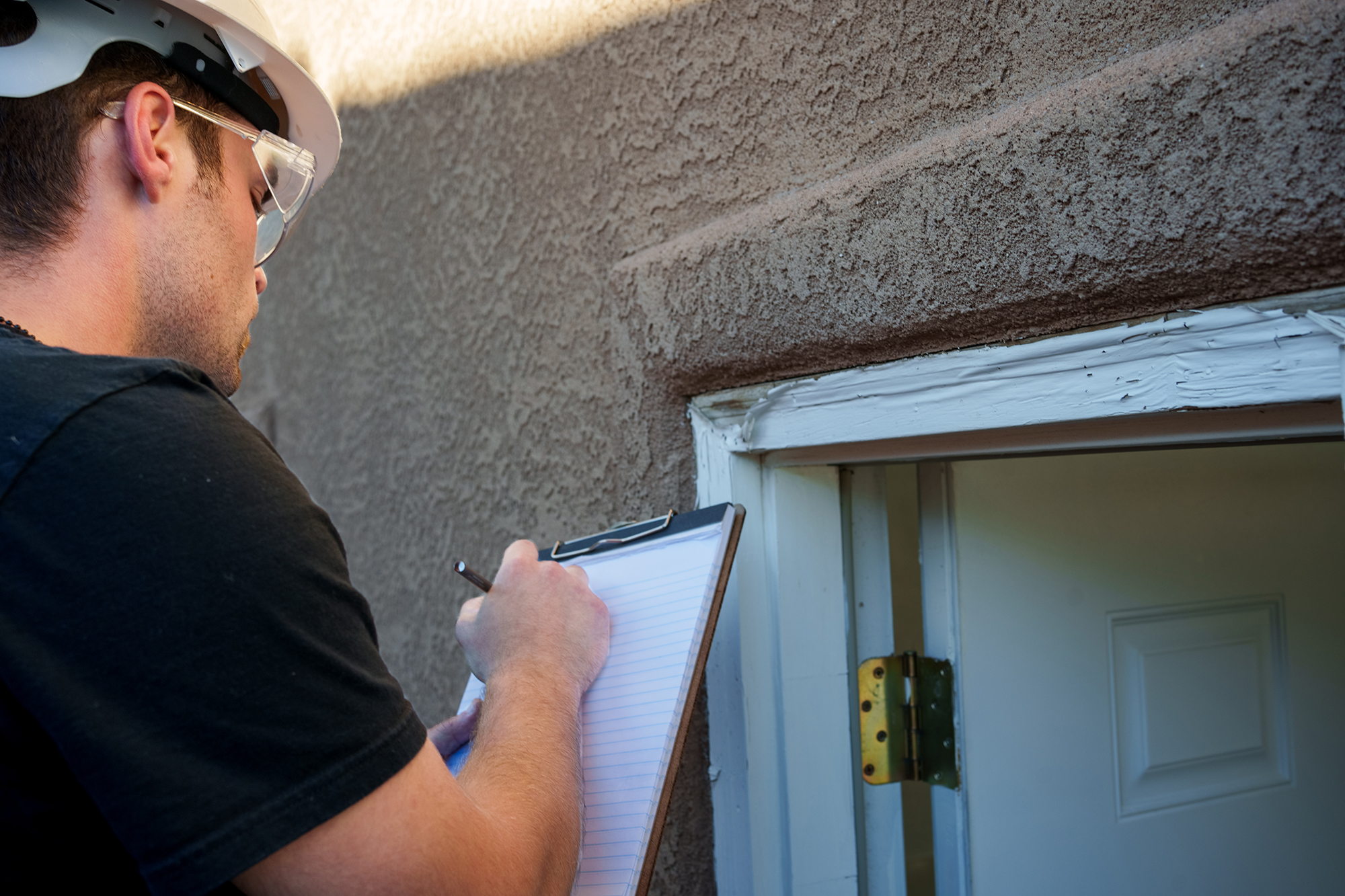
Before the Project
1. Consultation, Scoping, and Thorough Project Planning
Professional painters will begin by discussing your goals and vision for the project. At this point, it’s very important to be clear about what you want so they can tell you if it falls within their services.
However, before they paint, they will visit your home and assess the surfaces where they will paint, give you recommendations on colors and finishes, and create a detailed plan that outlines the scope of work, timeline, and budget.
Thorough project planning is a crucial step. It ensures that the project’s scope is clear to all parties involved and helps obtain an accurate quote, setting the stage for a successful painting project.
2. Clear Estimates and Pricing
A reputable painting service will provide you with a detailed estimate that includes the cost of labor, materials, and any additional services like clean up (removing all tools and materials from the premises after the job is done) and insurance in case of damage to your property or items.
This transparency helps you understand the costs involved and avoid any unpleasant surprises later on.
Research before signing or paying for anything to ensure you work with a reputable business that won’t charge you “additional” fees later.
3. Good Communication
Remember that it goes both ways. Ask plenty of questions before the job starts, such as how the painters will prepare, what preparations you need to make on your end, what products they use, how long the job will take, what their clean-up policy is, and so on.
Open and transparent communication is a hallmark of a professional painting service. They will inform you of progress, address concerns, and ensure their work aligns with your vision and expectations, making you feel heard and understood.
4. Advice on Colors and Materials
By the time you’ve hired professional painters, you’ll likely have at least an idea of how you want things done, such as a palette or theme and which rooms you want done. However, professionals can still provide valuable insight, so be flexible and open to new possibilities.
If you have any questions about colors or how to choose the best materials, bring them up during the consultation before starting the project.
However, most professional painters will provide their materials; you should know how this affects the overall cost. Ask what brands they use, as most professionals generally stick to a handful of product lines with which they’ve had good results.
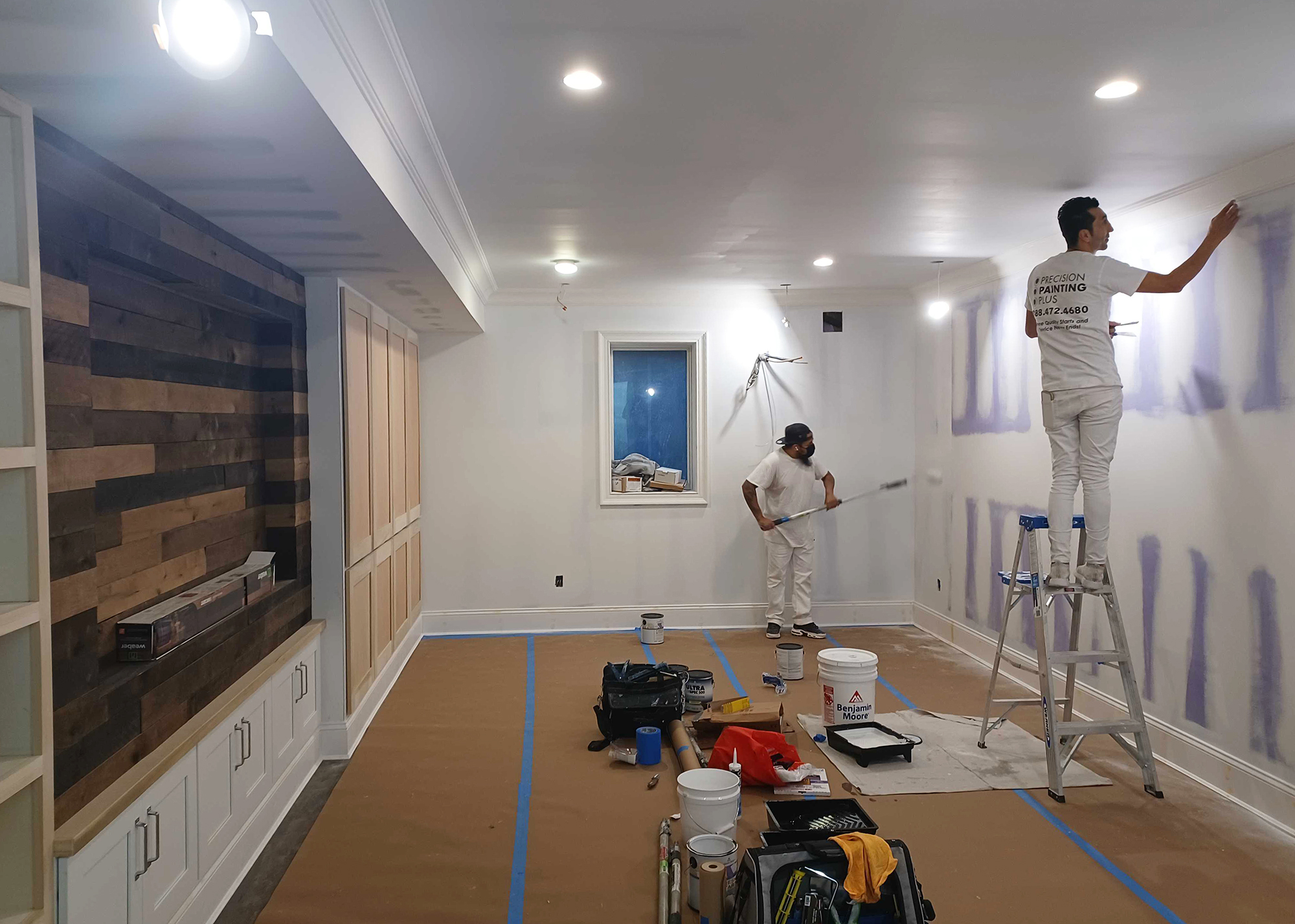
During the Project
5. Cleaning and Surface Preparation
Proper preparation is essential for a long-lasting finish. Professional painters will clean the surfaces to be painted, repair any damage, and apply primers as needed to ensure the paint adheres properly.
Most abide by the rules of “clean, dry, dull.” This process involves carefully cleaning the surface, possibly with a pressure washer, unless it could cause damage. Then, they give the walls enough time to dry to ensure the paint adheres properly. Finally, they sand the wall with fine-grit sandpaper to achieve an even surface and minimize imperfections.
6. High-Quality Paint
Experienced painters will use high-quality paints that are best suited for the job. They should also consider the environmental conditions of the painted area (humidity, how much sunlight it gets, etc.) and the walls themselves for best results.
7. High-Quality Tools and Materials
Professional painters prepare the surfaces before painting using their tools, including tarps, tape, and cleaning equipment. Depending on the project’s needs, they will likely use a combination of brushes and rollers for the painting.
After the Project
8. Clean Up
After completing a professional painting job, painters will thoroughly clean up the area. First, they gather all used paint cans, brushes, and tools. Next, they remove painter’s tape from edges and surfaces, vacuuming or sweeping the area to remove dust and debris, ensuring a clean and polished finish.
They also clean brushes and rollers with appropriate solvents to remove paint residue. Any spills or splatters are carefully wiped clean from floors, trim, and other surfaces.
Additionally, painters inspect the area for imperfections or missed spots, touching up as needed. Finally, they pack up their equipment and materials, leaving the space looking as good as new.
9. Follow-Ups
Any professional painter should be willing to follow up on the project if some part of the project isn’t up to par with your expectations and agreed-upon goals. Hopefully, this won’t happen, and your project will end up fine, but a reputable professional will be willing to follow through on their word.
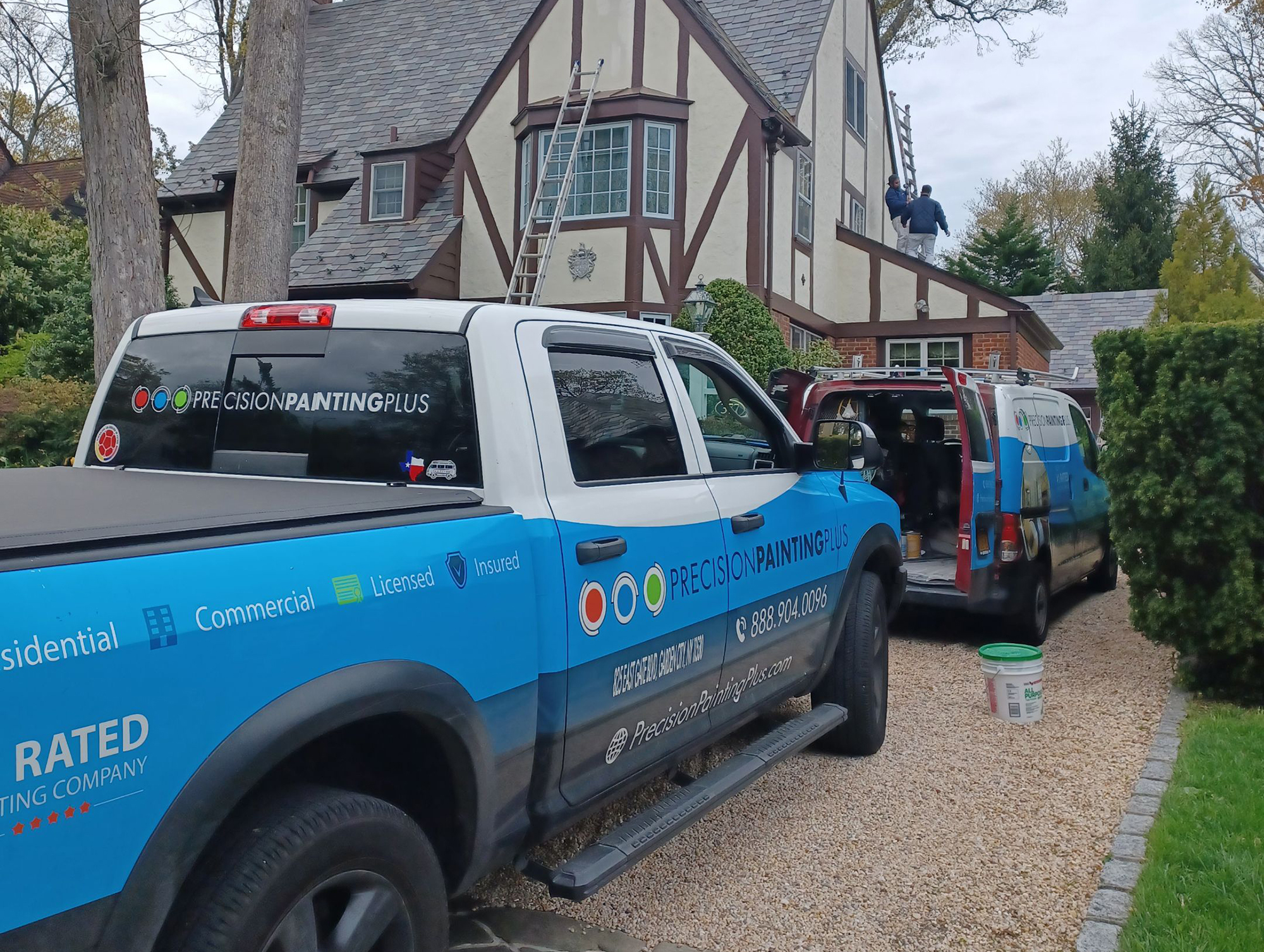
What to Look for in Professional Painters?
These are the most important factors before hiring a professional painting company:
- Reputation and Awards: Check online reviews, ask for references, and look at their portfolio of completed projects. Awarded companies often have recognition for their exceptional work and customer satisfaction, which can indicate their reliability and skill.
- Insurance and Licenses: A professional painting company should have comprehensive insurance coverage, including general liability and worker’s compensation. This protects you in case of any accidents or damage during the project. Ensure they are also fully licensed to operate in your area, guaranteeing they meet local standards and regulations.
- Quality of Materials: Professional painters typically use high-quality paints and tools, which ensure a durable and aesthetically pleasing finish. Feel free to ask about the brands and types of products they prefer and why.
- Experience and Expertise: Companies with years of experience or those led by seasoned professionals are generally more adept at handling various challenges during the project. Look for painters who can provide examples of similar projects they’ve completed.
- Customer Service: They should be willing to answer all your questions, provide precise estimates, and keep you updated throughout the project. Good customer service ensures your needs and concerns are addressed promptly and satisfactorily.
- Project Management and Clean-Up: Professional painters should efficiently manage every aspect of the project, from initial consultation to final clean-up. They should provide a detailed plan and timeline, handle all preparations, and ensure the site is left clean and tidy after the job is done. This level of thoroughness reflects their commitment to quality and customer satisfaction.
Professional Painters Make Projects Easy
Professional painters have the tools, team, and skills to make any house painting project a reality, helping you make the most informed decision at every step.
You don’t have to let the scale of a painting project prevent you from giving your home a makeover. Contact Precision Painting Plus today by calling 887.249.8543 or filling out our contact form for a consultation, where an expert will guide you on your best move forward based on your needs.
